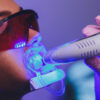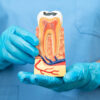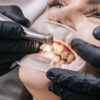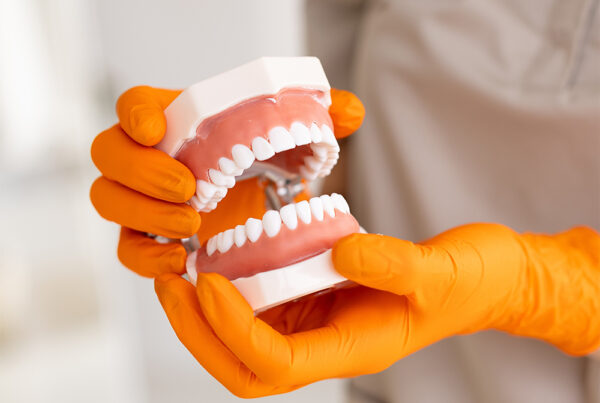What Is Dental Prosthesis?
Dental prosthesis is a term used to describe any artificial device used to replace missing teeth or other parts of the mouth. This includes dentures, bridges, crowns, and implants. Dental prosthetics are designed to restore the function and aesthetics of your smile while providing long-term oral health benefits.
Dentures are one of the most common types of dental prosthetics. They are removable appliances that replace all or some of the natural teeth in a person’s mouth. Dentures can be full or partial depending on how many teeth need to be replaced. Full dentures replace all the teeth in either the upper or lower jaw, while partial dentures fill in gaps created by missing teeth. Dentures are typically made from acrylic resin and metal components for added strength and durability.
Bridges are another type of dental prosthetic that can be used to replace one or more missing teeth. Bridges use two crowns that fit over existing healthy teeth on either side of the gap created by a missing tooth. The bridge then holds an artificial tooth (or pontic) in place between them. Bridges are typically made from porcelain fused to metal for added strength and durability.
Crowns are also known as caps and they fit over existing damaged or decayed teeth to restore their shape, size, strength, and appearance. Crowns can also be used with bridges when there is more than one missing tooth in a row.
What Are The Materials Of Dental Prosthesis?
They can be made from a variety of materials, including metals, plastics, and ceramics. Each material has its own unique properties that make it suitable for certain applications.
Metals are commonly used in dental prostheses due to their strength and durability. Gold is the most popular metal used in dental prostheses because it is strong and non-corrosive. It also has excellent biocompatibility, meaning it won’t cause an allergic reaction when placed in the mouth. Other metals such as titanium and cobalt chrome are also used in some cases due to their strength and resistance to corrosion.
Plastics are another common material used in dental prostheses due to their affordability and versatility. Acrylics are the most popular type of plastic used for dentures because they can be easily molded into shape and colored to match natural teeth. They are also lightweight and comfortable to wear. Polymers such as polymethyl methacrylate (PMMA) are also commonly used for partial dentures because they provide a good fit and stability when attached to adjacent teeth or implants.
Ceramics have become increasingly popular for use in dental prostheses due to their strength, durability, and aesthetic appeal. Porcelain is the most common type of ceramic used for crowns, bridges, veneers, and other restorations because it closely resembles natural tooth enamel in color and texture. Zirconia is anothe
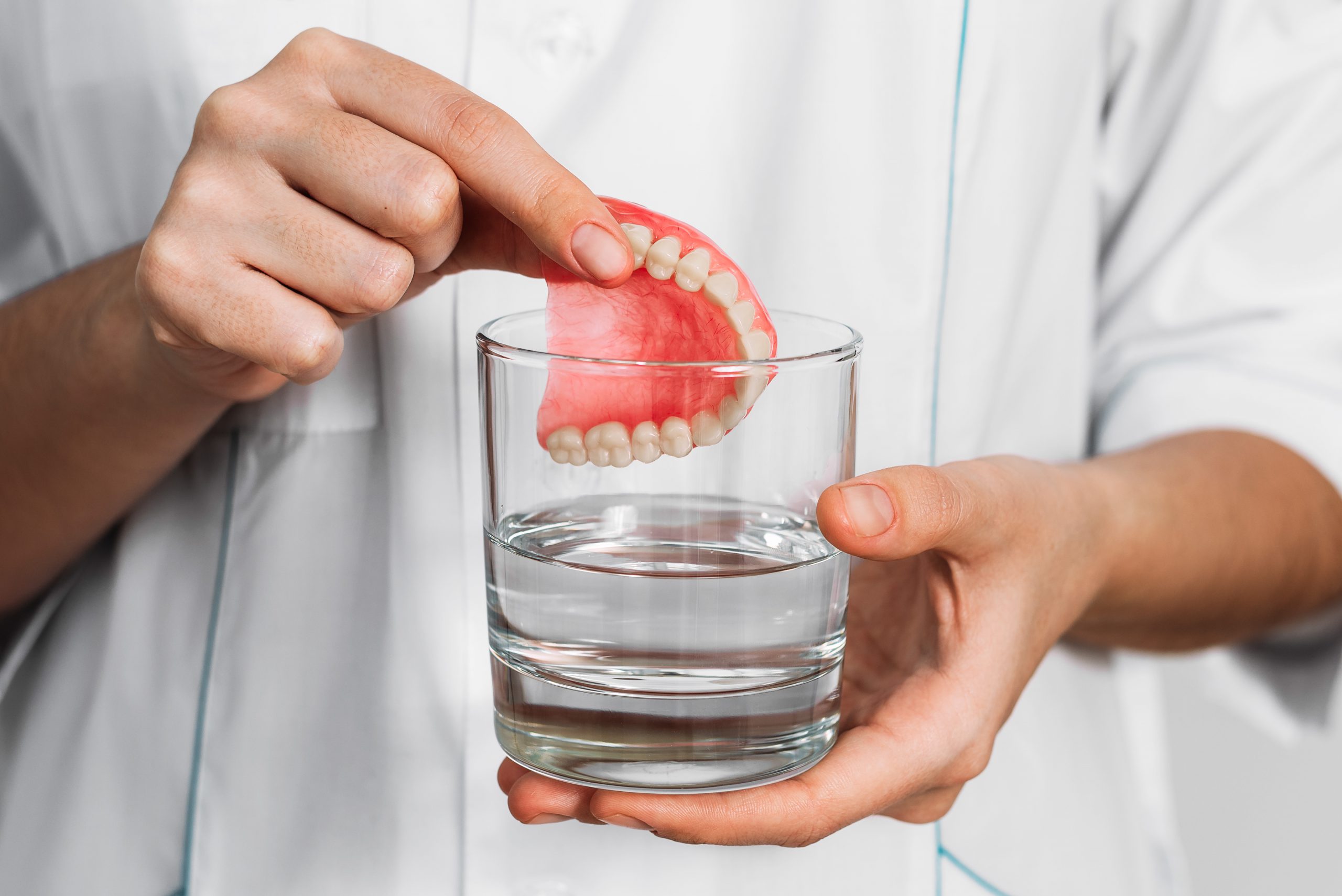
How Dental Prosthetics Are Applied?
Dental prosthetics are designed to look and feel like natural teeth, restoring the patient’s smile and ability to chew properly. The application of dental prosthetics is a complex process that requires skill and precision from the dentist or prosthodontist.
The first step in applying dental prosthetics is to assess the patient’s needs and determine the best type of restoration for their situation. This may involve taking X-rays, impressions, or photographs of the mouth. The dentist will then create a treatment plan based on these images and discuss it with the patient. Once approved, the dentist will prepare the area for the prosthetic by removing any remaining tooth structure or damaged tissue.
Next, an impression is taken of the prepared area so that a custom-made prosthetic can be created in a laboratory. This impression is sent to a lab technician who creates a model of the restoration using wax or plastic material. Once completed, this model is sent back to the dentist who checks it for accuracy before sending it off for fabrication. Depending on what type of prosthetic is being applied, this fabrication process may involve creating metal frameworks, porcelain crowns, bridges, dentures, or implant-supported restorations.
Once ready, the dentist will bond or cement the new restoration into place using special adhesives or cements. They may also need to make adjustments to ensure proper fit and function before finishing up with polishing and other final touches. Aftercare instructions are then provided to help maintain oral health and prolong life expectancy of dental prosthetics. With proper care and maintenance, patients can enjoy restored smiles for many years to come!

How Long Dental Prothesis Last?
Dental prosthesis, such as dentures and bridges, are designed to last for many years with proper care. Depending on the type of prosthesis, how well it is cared for, and the individual’s oral health, a dental prosthesis can last anywhere from five to fifteen years.
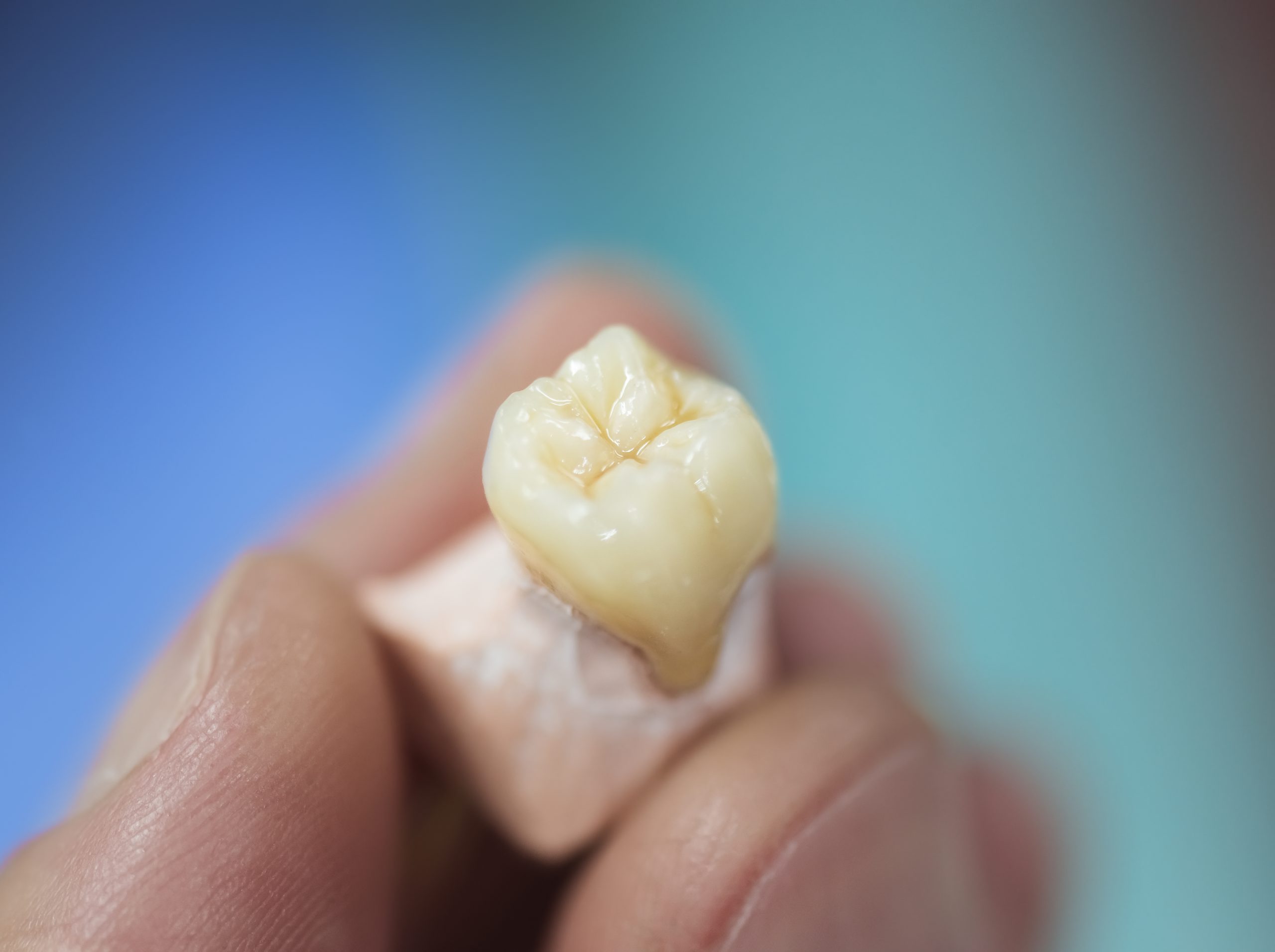
Who Is Suitable For Dental Prosthesis?
While dental prosthesis can be a great solution for many people, they may not be suitable for everyone.
Generally speaking, anyone who is missing one or more teeth is a candidate for dental prosthesis. However, there are certain factors that can affect whether someone is suitable for this type of treatment. The most important factor is the health of the patient’s mouth and gums. If there are any signs of gum disease or other oral health issues, these must be addressed before considering dentures. Additionally, if a patient has had extensive tooth loss due to periodontal disease or decay, it may not be possible to replace all of the missing teeth with dentures.
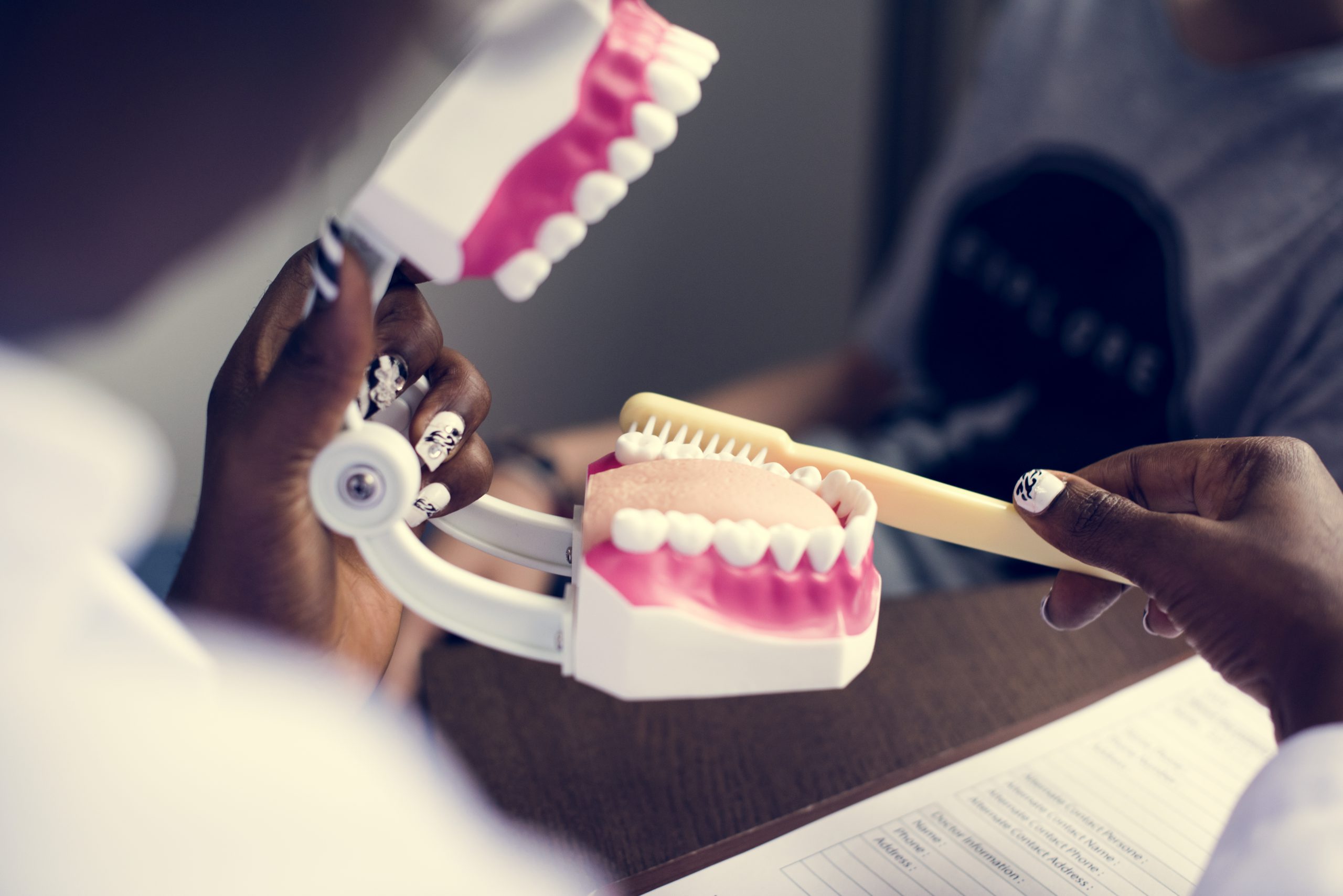
Another factor that affects suitability for dental prosthesis is jawbone density. If the jawbone has deteriorated due to age or tooth loss, it may not provide enough support for dentures. In this case, a bone graft may be necessary in order to provide sufficient support for the prosthesis. Additionally, if a patient has difficulty controlling their facial muscles due to stroke or other neurological conditions, they may not be able to wear dentures comfortably or securely.
Finally, lifestyle habits such as smoking and drinking alcohol can also affect whether someone is suitable for dental prosthesis. Smoking increases the risk of gum disease and other oral health problems which could make it difficult to wear dentures comfortably and securely. Similarly, excessive alcohol consumption can lead to dry mouth which can cause discomfort when wearing dentures and increase the risk of developing cavities in any remaining natural teeth.
Overall, while dental prosthesis can provide an effective solution for many people who are missing one or more teeth, there are certain factors that need to be taken into consideration when determining suitability for this type of treatment. It is important that patients discuss their individual circumstances with their dentist in order to determine whether dental prosthesis will work best for them and how they should proceed with treatment if so desired.
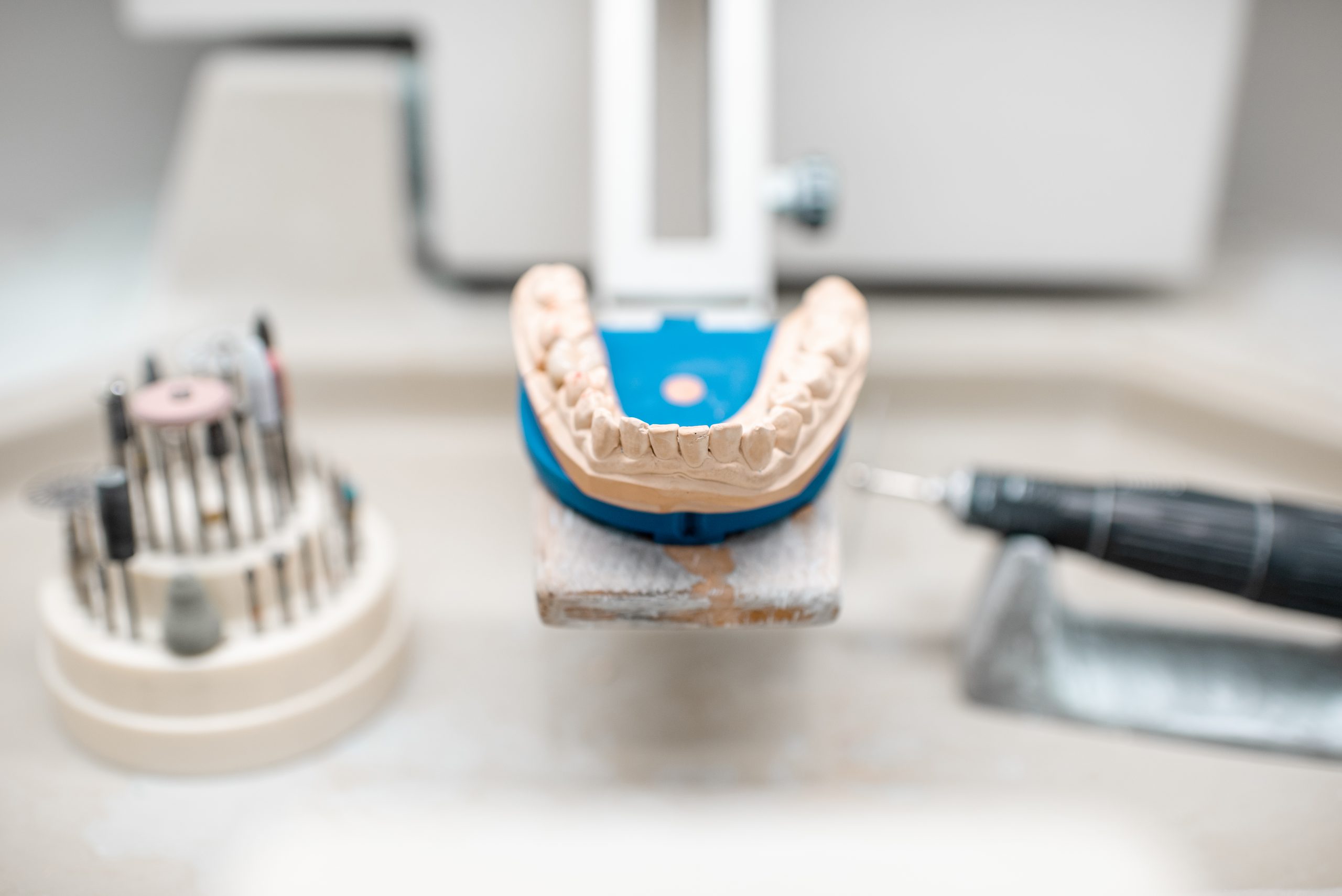
Are Every Dental Prosthesis Eligible For Every Patient?
Dental prosthesis is a type of dental restoration that replaces missing teeth. It can be used to replace one or more teeth, or even an entire arch of teeth. The number of teeth you need to be missing for a dental prosthesis depends on the type of prosthesis you are getting and the amount of remaining natural teeth in your mouth. For a partial denture, which is a removable appliance that replaces one or more missing teeth, you may need to have two or more consecutive missing teeth for it to be effective. A full denture, which replaces an entire arch of missing teeth, usually requires at least eight to ten consecutive missing teeth for it to fit properly and function effectively. If you are getting a fixed bridge, which uses existing natural teeth as anchors for artificial replacement teeth, then you may need three or more consecutive missing teeth for it to be successful. They will also discuss how many teeth you need to be missing in order for the prosthesis to work effectively and look aesthetically pleasing.
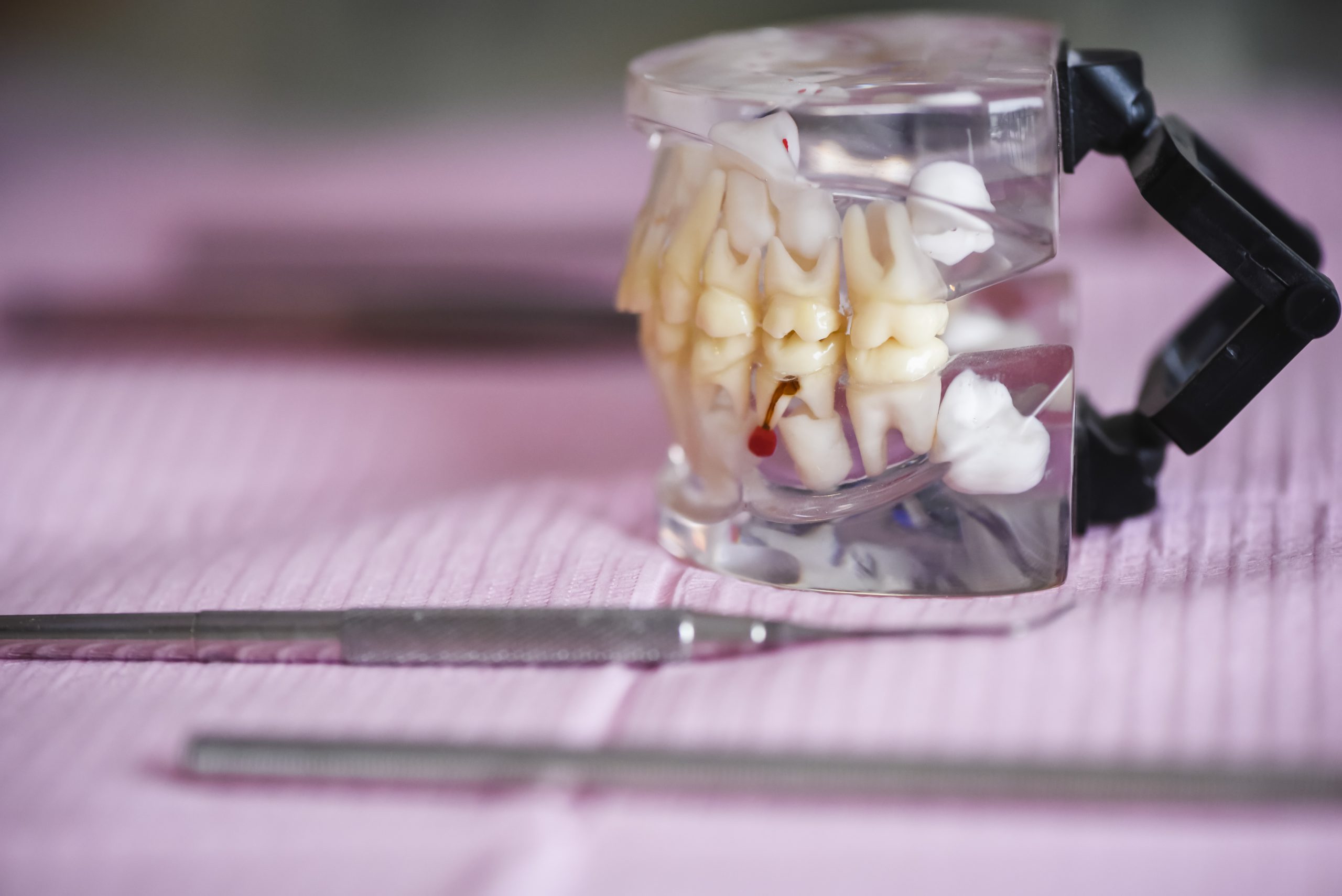
Aftercare Tips For Dental Prosthesis
Whether you have had a dental implant, bridge, crown, or denture, it is important to take proper care of your new dental prosthesis to ensure its longevity. Here are some aftercare tips for dental prosthesis that will help you maintain your oral health and keep your new teeth looking their best.
- Brush Twice a Day
It is important to brush twice a day with a soft-bristled toothbrush and fluoride toothpaste. Be sure to brush all surfaces of the prosthesis as well as the surrounding gums and teeth. Use gentle circular motions when brushing and avoid scrubbing too hard as this can damage the surface of the prosthesis.
- Floss Daily
Flossing daily is an essential part of maintaining good oral hygiene when wearing a dental prosthesis. Use waxed floss that slides easily between the teeth and gently move it up and down against each side of each tooth. Do not force the floss into tight spaces as this can cause irritation or damage to the gums or prosthesis.
- Visit Your Dentist Regularly
Visiting your dentist regularly for checkups and cleanings is an important part of keeping your dental prosthesis in good condition over time. During these visits, your dentist will check for any signs of wear or damage that may need attention before they become serious problems down the road.
- Clean Your Prosthesis Daily
It’s important to clean your dental prosthesis every day with warm water and mild soap or special cleaning solutions designed specifically for dentures or other types of dental prostheses. Never use abrasive cleaners on your prosthetic teeth as this could cause scratches that could trap bacteria and lead to gum disease or other issues over time.
- Handle With Care
When handling your dental prosthesis be sure to do so carefully in order to avoid damaging them in any way. This means avoiding dropping them onto hard surfaces such as tile floors or countertops as well as avoiding excessive bending which could cause them to crack or break apart over time due to weakened materials from frequent flexing motions caused by improper handling techniques .
- Soak Overnight
It’s important to soak overnight in either water or special cleaning solutions designed specifically for dentures or other types of dental prostheses at least once per week in order to keep them clean and free from bacteria build-up which can lead to bad breath and gum disease over time if left unchecked .

What Are The Foods Should Be Avoided With Dental Prosthesis?
If you have a dental prosthesis, it is important to be aware of the foods that you should avoid eating. Eating certain foods can cause damage to your prosthesis and can lead to further dental problems. Here are some of the foods that you should avoid eating with a dental prosthesis:
Sticky Foods
Sticky foods such as gum, caramel, taffy, and chewy candy can get stuck in your prosthesis and cause damage. It is best to avoid these types of food altogether when wearing a dental prosthesis.
Hard Foods
Hard foods such as nuts, popcorn kernels, hard candy, and ice cubes can chip or break your prosthesis. Avoid these types of food if you want to keep your prosthesis in good condition.
Chewy Foods
Chewy foods such as steak, jerky, and bagels can put strain on your dentures and cause them to become loose or damaged. It is best to avoid these types of food when wearing a dental prosthesis.
Sugary Foods
Sugary foods such as candy and soda can increase the risk of cavities in the teeth around your dentures. This can lead to further dental problems down the line so it is best to avoid sugary snacks when wearing a dental prosthesis.
Acidic Foods
Acidic foods such as citrus fruits and tomatoes can erode the enamel on your dentures over time. This can lead to discoloration or even cracking so it is best to avoid acidic foods when wearing a dental prosthesis.
Crunchy Foods
Crunchy foods such as chips and crackers can put strain on your dentures which could lead to them becoming loose or damaged over time. It is best to avoid crunchy snacks when wearing a dental prosthesis.
Alcoholic Beverages
Alcoholic beverages such as beer and wine contain sugar which increases the risk of cavities in the teeth around your dentures. Additionally, alcoholic beverages also contain acids which could erode the enamel on your dentures over time so it is best to avoid them altogether when wearing a dental prosthesis.


